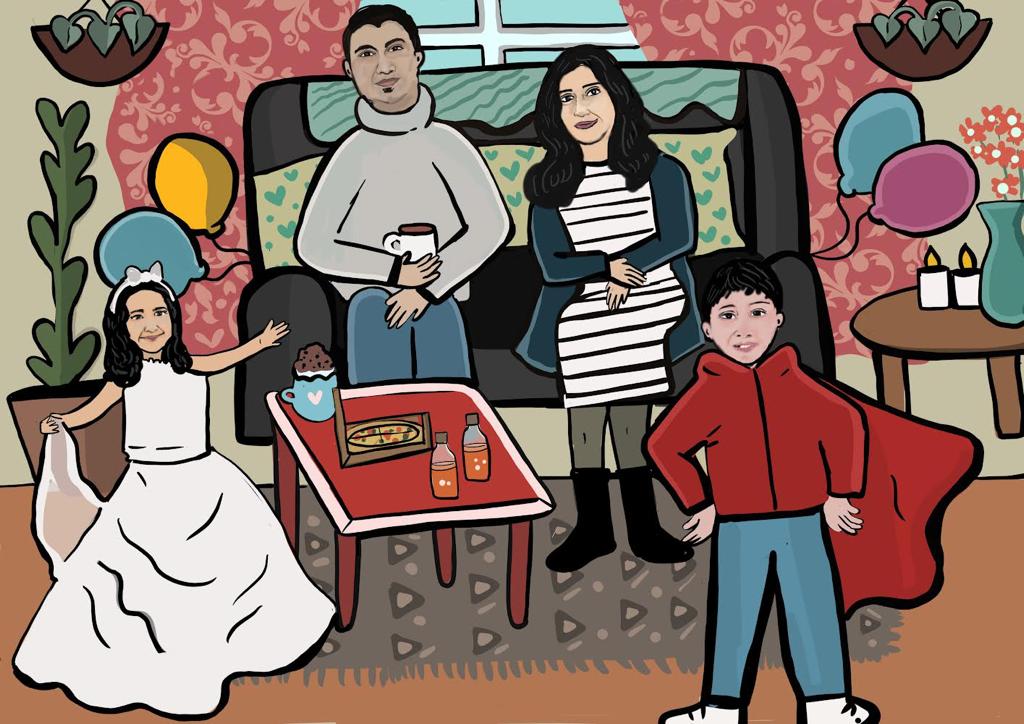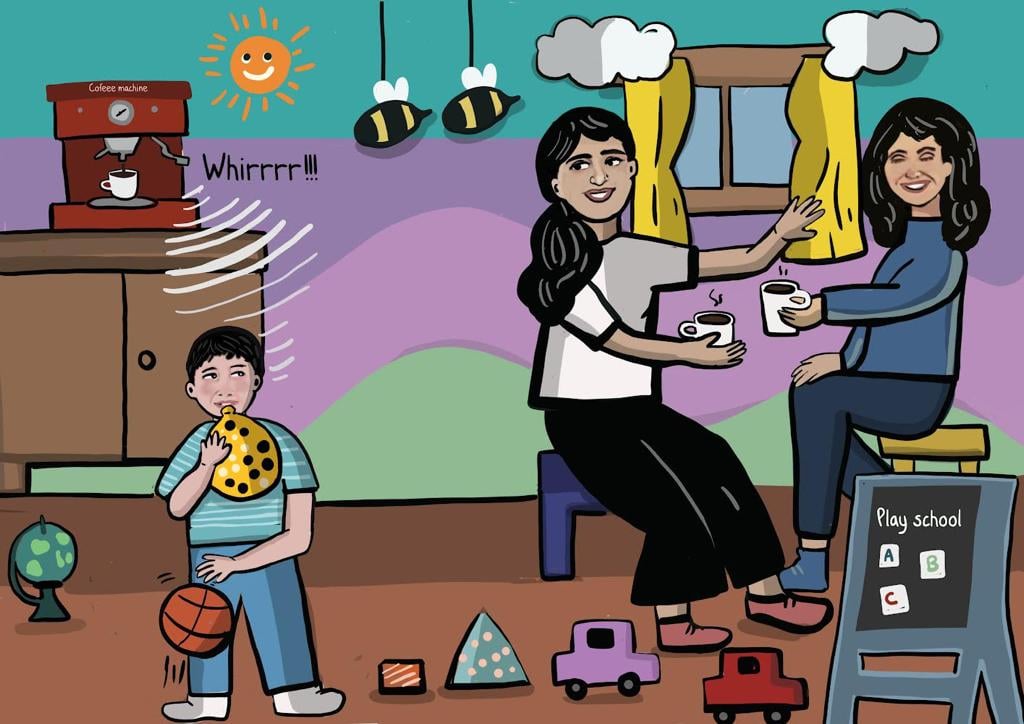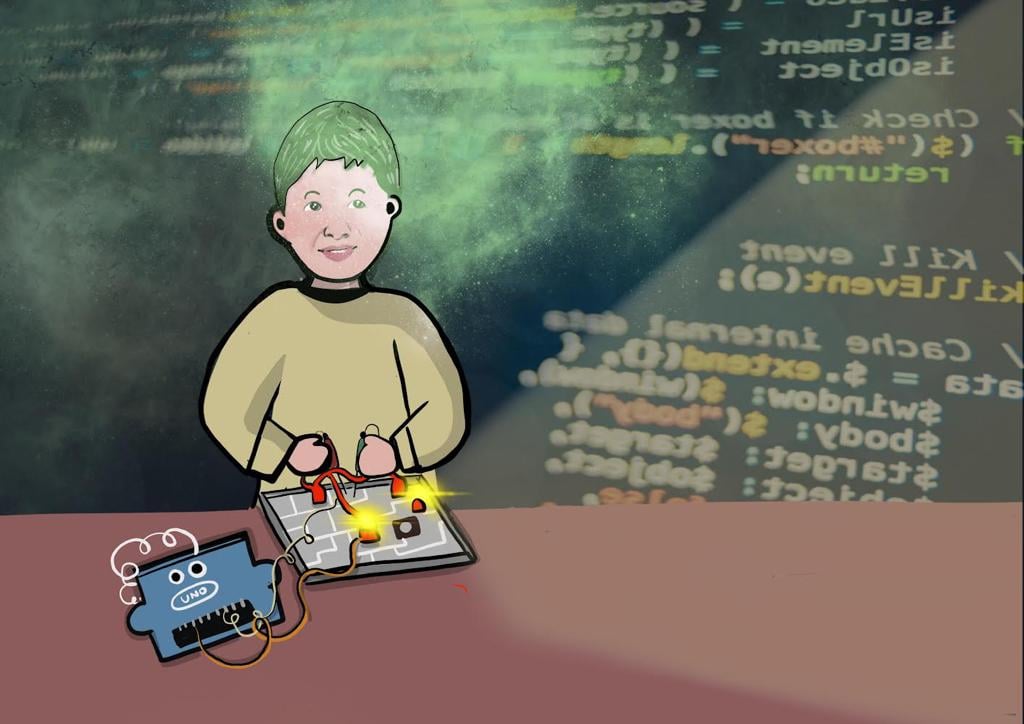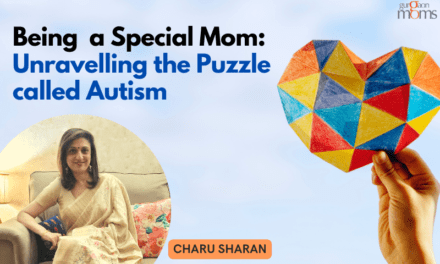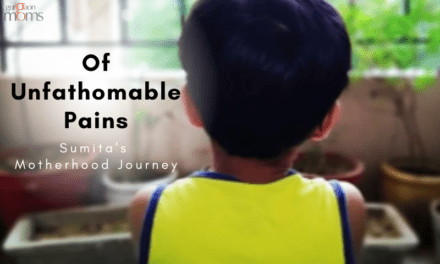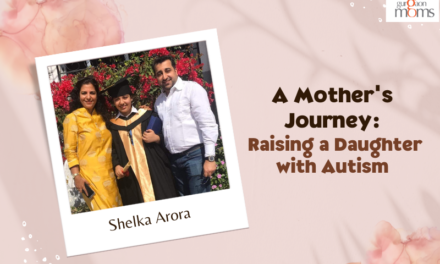I am a proud mother of a neurodiverse child and looking to build inclusion and sensitize our community by sharing my experience with autism. I firmly believe that mothers play a pivotal role in shaping up the mindset of our future generations on how they can accept neurodiversity in kids by breaking some of the taboos and myths that we develop due to lack of discussion on this potent topic.
By sharing my own experience, I would like you to spread more awareness and sensitize our fellow moms
CHAPTER 1:Meet, Greet and Normal Treat
I am a proud mother of an 8-year-old super-human, worldly termed as – Autism/ASD.
Often words like autism, Neuro-diverse or any other form of different ability bring some sad emotions for them or their families but sorry for the spoiler alert, it’s not really that bad.
Trust me, we are as much fun-loving as we are strange at the same time. Yes, there are ups and downs like any other family (perhaps a million more times) but we learn to deal with them over time, as they say ‘what does not kill you makes you stronger..
Whenever you meet or hear about a family like ours – please don’t apologize as it just makes us feel more miserable.
What we expect from the people around us is nothing more than any “Neurotypical” family – to meet, greet, and normal treat.
Little dude is Superhuman?? Let’s find out in the next chapter
CHAPTER 2:Little dude has got some skills!
Yes, our little dude is a superhuman!
Cos, when he enters a new environment, he can x-ray scan and analyze the whole situation way faster than an NT (Neuro Typical). He scans all the objects around in the room, while also listening to conversations and can analyze people’s body language super quick. If he likes any sensory input, he is quick to grab them way before you realize it’s in a room.
He picks up any language spoken around him (without speaking skills). He learned Spanish while my daughter was doing her online classes and off-course, he knows Hindi, English, and Punjabi (Languages of home)
He picks up small cues real fast like – he exactly knows if a person will bring his food for him or he needs to walk up to the table or if the mom will pull up his pants while dressing up or he got to do it, even when walking with his dad he knows that he really does not have to walk and will be quick to cling on him. That’s not true just with family but anyone new he meets.
Wouldn’t these make him a superhuman? aammmm well, may be!
Hang in there, there is more. This is just the tip of the iceberg, Stay tuned!
CHAPTER 3: Education is a must!
I am also a mother of a 5-year-old “NT” girl who needs to be taught every education concept or subject, not once but quite a few times like any other kid.
However, with my little dude – simply play a concept in a video or a teacher teaching online and he picks the concept at once – “literally ANY concept” even an engineering or Python (a high-level programming language). Now whether he will do it again or showcase his skills really depends on his interest or mood
Well, that’s my little Superhuman…. I told you!
Alert! It’s not just him, this is true for most superhumans. Areas of interest can be different for every child.
Isn’t that something we all want in our kids? Be a Quick Learner!
Let’s all celebrate this brilliance.
CHAPTER 4: Finding excellence is a blessing!
“Go after excellence, success will follow”. Often we hear this from wise ones.
Most superhumans know what are they good (really good) at like some are maths prodigy, some are born singers, others are puzzle masters.
One child as young as 3-year-old can solve a 100-piece puzzle while the other can do jumbled words in seconds.
A math wizard can answer any equation in a fraction of a second.
Some know the exact date of almost every situation they have come across while others can draw/create an exact image of a hotel room they visited 5 months ago.
These are only some examples.
Most children show their interest from a very young age. We often celebrate the excellence/mastery of a Neurotypical.
In autism, it’s treated as one of the signs to diagnose autism that makes parents feel more worried than celebration.
It’s definitely something that needs to celebrate.
CHAPTER 5: Autism and Intelligence
In my earlier post (chapter 2), we discussed my little dude’s superfast concept grabbing powers. It has been proven that there is a correlation between Autism and Intelligence.
Intelligent people understand concepts way faster, analyze more and probably love their subjects more intensely than others. Well, these qualities hold true for my little dude too. He seems to be in a constant exam mode, processing loads of information in his head (at times unexpected information too).
Well, there is always a downside to everything, and intelligence is no different. When my little dude is in a large crowded or noisy place it becomes really overwhelming for him as his brain has to now process much more information at once.
However, how can a superhuman give up so easily? You’re right, he wouldn’t. My little dude always finds his own ways to comfort himself, which is often labeled as ‘sensory needs’. As part of the self-calming mechanism, he often covers both his ears with hands to stop receiving so many signals at once. If that’s not enough he would sing/hymns a tone constantly (in his head) to shift his focus away from that noise to his own sound. That’s quite smart, isn’t it? This is what we neuro-typical call ‘the state of meditation’ where we cut our thoughts from all the outside clutter by focusing on a sound like ‘oomm’ or simply our own breath. That’s quite remarkable for an 8 years old dude to be practicing this sort of ‘meditation’ That my little saint! :
Directly communicating his needs or expressing his emotions is tough for my little dude as communication paths are not functioning the way it’s for most of us.
With so much happening in the child’s little mind obviously makes things hard for him and his family. Talking about how I deal with my little dude in the next talk.


